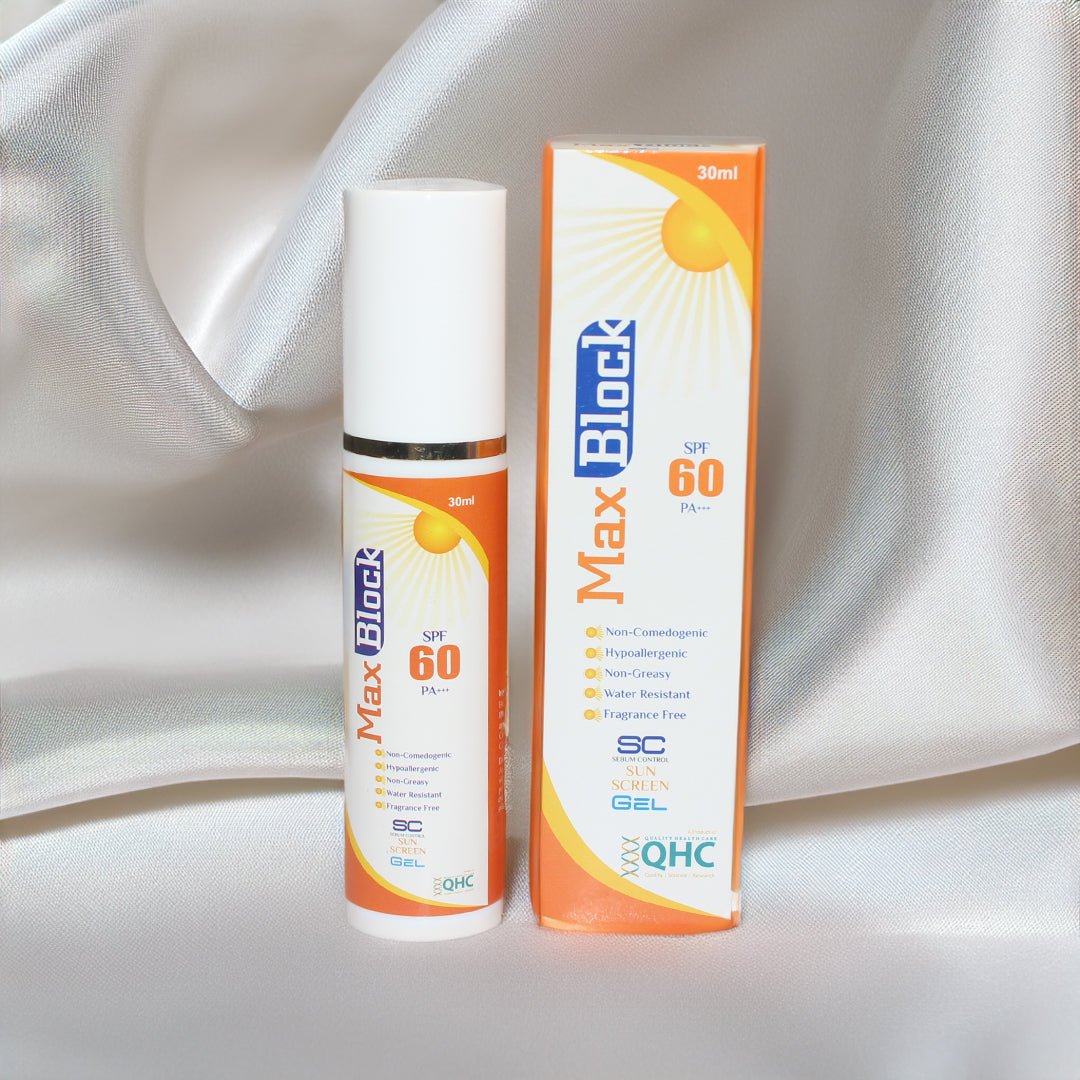Introduction To The Sunblock
Sun protection is essential for maintaining healthy skin, especially in a country like Pakistan, where the sun can be intense year-round. Using the best sunblock is crucial to prevent sunburn, premature aging and even skin cancer. In this article, we’ll explore why sunblock is necessary how to choose the right one for your skin type and what makes a sunblock the best Sunblock in Pakistan.
Why is Sun Protection Important?
The sun emits harmful ultraviolet (UV) rays that can cause significant damage to your skin. Prolonged exposure to these rays without protection can lead to various skin problems. Here’s why using sunblock is vital:
- Prevents Sunburn: Sunburn can be painful and damaging. Sunblock helps shield your skin from UVB rays, which are responsible for causing sunburn.
- Reduces Risk of Skin Cancer: UV radiation is a leading cause of skin cancer. Regular use of sunblock reduces your risk of developing this serious condition.
- Prevents Premature Aging: Sun exposure can cause wrinkles, fine lines, and age spots. Sunblock protects your skin, keeping it youthful and radiant.
- Prevents Hyperpigmentation: Prolonged exposure to the sun can lead to dark spots and uneven skin tone. Sunblock helps in maintaining an even complexion.
Understanding SPF: What Does It Mean?
Sun Protection Factor (SPF) is a measure of how well a sunblock can protect your skin from UVB rays. Here’s a simple breakdown:
- SPF 15: Filters out about 93% of UVB rays.
- SPF 30: Filters out about 97% of UVB rays.
- SPF 50: Filters out about 98% of UVB rays.
The higher the SPF, the greater the protection. However, no sunblock can block 100% of UVB rays, so it’s essential to reapply it regularly, especially after sweating or swimming.
Types of Sunblock
Sunblock comes in different forms, and choosing the right type depends on your skin type and lifestyle. Here are the main types:
- Physical (Mineral) Sunblock: Contains ingredients like zinc oxide or titanium dioxide, which create a physical barrier on your skin. Ideal for sensitive skin as it’s less likely to cause irritation.
- Chemical Sunblock: Absorbs UV rays and converts them into heat, which is then released from the skin. This type is generally lighter and easier to apply but may cause irritation in sensitive individuals.
- Water-Resistant Sunblock: Perfect for those who sweat a lot or enjoy swimming. It stays effective even when exposed to water or sweat.
How to Choose the Best Sunblock for Your Skin Type
Selecting the best sunblock depends on your skin type. Here’s a guide to help you make the right choice:
- Oily Skin: Look for a non-comedogenic sunblock that won’t clog pores. Gel-based or water-based formulas work well.
- Dry Skin: Choose a sunblock with hydrating ingredients like hyaluronic acid or glycerin. Cream-based sunblocks are ideal.
- Sensitive Skin: Opt for a physical sunblock with zinc oxide or titanium dioxide. Avoid fragrances and alcohol.
- Normal Skin: You can use most sunblocks, but it’s still essential to pick one that suits your lifestyle and exposure to the sun.
Benefits of Using Sunblock Daily
Incorporating sunblock into your daily skincare routine offers several benefits:
- Long-Term Skin Health: Regular use of sunblock protects your skin from long-term damage, reducing the risk of skin conditions.
- Even Skin Tone: Sunblock helps prevent hyperpigmentation, maintaining an even skin tone.
- Youthful Appearance: By protecting your skin from UV damage, sunblock helps maintain a youthful and healthy appearance.
How to Apply Sunblock Correctly
Applying sunblock correctly is just as important as choosing the right one. Here’s how to do it:
- Apply Generously: Use enough sunblock to cover all exposed areas of your skin. Don’t forget places like your ears, neck, and the back of your hands.
- Apply Before Sun Exposure: Sunblock should be applied at least 15-30 minutes before you go outside to ensure it’s fully absorbed.
- Reapply Every Two Hours: Sunblock wears off over time, so it’s essential to reapply every two hours, especially if you’re swimming or sweating.
- Don’t Skip on Cloudy Days: UV rays can penetrate through clouds, so it’s important to wear sunblock even on overcast days.
Common Sunblock Myths Debunked
There are many misconceptions about sunblock. Here are some common myths debunked:
- Myth: “You don’t need sunblock indoors.” Reality: UV rays can penetrate windows, so it’s essential to wear sunblock even when you’re indoors.
- Myth: “People with darker skin don’t need sunblock.” Reality: While darker skin has more melanin, which offers some protection, it’s still vulnerable to UV damage.
- Myth: “One application of sunblock lasts all day.” Reality: Sunblock needs to be reapplied every two hours for effective protection.
Final Thoughts
Finding the best Sunscreen in Pakistan is essential for protecting your skin from harmful UV rays. By understanding your skin type and the various options available, you can make an informed decision. Remember to apply sunblock generously and regularly to maintain healthy youthful skin. Incorporating sunblock into your daily routine is a simple yet effective way to safeguard your skin from the sun’s damaging effects.




